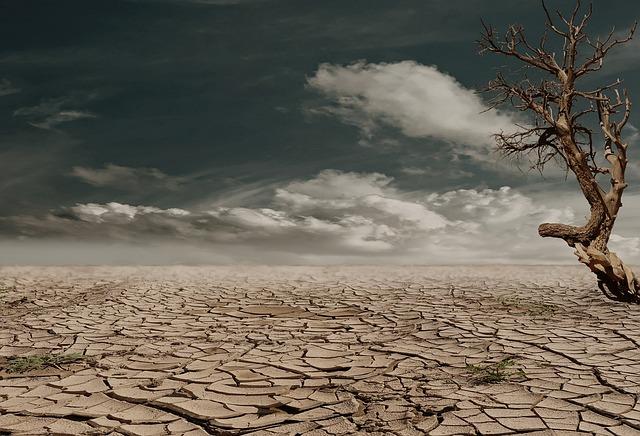
Dehydration occurs when the body loses more fluids than it takes in. This can happen due to various reasons such as not drinking enough water, sweating excessively, vomiting, or diarrhea. Dehydration can lead to serious health issues if not addressed promptly. It’s important to recognize the signs and symptoms of dehydration in order to prevent any complications.
In this article, we will discuss the symptoms of dehydration and how to recognize them. It’s essential to be aware of these symptoms and take necessary steps to prevent dehydration.
1. Dry Mouth
One of the initial signs of dehydration is a dry mouth. When the body lacks adequate fluids, the salivary glands produce less saliva, resulting in a dry, sticky feeling in the mouth. This can make it difficult to swallow and can also lead to bad breath.
If you notice a dry mouth, it’s essential to start drinking water immediately to rehydrate the body. Avoid beverages that can further dehydrate the body, such as caffeinated or alcoholic drinks.
2. Fatigue
Dehydration can also cause fatigue and low energy levels. When the body doesn’t have enough fluids, the heart has to work harder to pump blood to deliver nutrients and oxygen to the cells. This extra strain can lead to feelings of tiredness and lethargy.
If you’re feeling unusually tired, it’s important to consider whether you’ve been drinking enough water. Increasing your fluid intake can help alleviate fatigue and boost energy levels.
3. Dizziness
Another common symptom of dehydration is dizziness or lightheadedness. When the body is dehydrated, the blood pressure can drop, leading to feelings of dizziness when standing up or moving quickly.
If you experience dizziness, it’s important to sit or lie down and drink water slowly to rehydrate the body. Avoid sudden movements to prevent fainting or falling.
4. Dark Urine
Monitoring the color of your urine can provide valuable insights into your hydration levels. Dark yellow or amber-colored urine is a clear indication of dehydration. When the body lacks fluids, the kidneys concentrate the urine, leading to a darker color.
Aim to drink enough water to maintain pale yellow or clear urine, which is a sign of adequate hydration. If you notice dark urine, increase your fluid intake immediately.
5. Headaches
Dehydration can also trigger headaches and migraines. When the body is dehydrated, the brain can temporarily contract from the skull, leading to pain and discomfort. Dehydration can also affect electrolyte levels, leading to headaches.
If you experience a headache, consider whether you’ve been drinking enough water. Rehydrating the body can often alleviate headaches and provide relief from discomfort.
6. Sunken Eyes
One of the more severe symptoms of dehydration is sunken eyes. When the body lacks fluids, the skin around the eyes can appear sunken and hollow. This is a clear indication of severe dehydration and should be addressed immediately.
If you notice sunken eyes, it’s crucial to seek medical attention and rehydrate the body as soon as possible. Severe dehydration can lead to serious health complications and should not be ignored.
7. Rapid Heartbeat
Dehydration can also cause an increased heart rate or palpitations. When the body lacks fluids, the heart has to work harder to maintain adequate blood flow, leading to a rapid heartbeat. This can also cause feelings of anxiety or panic.
If you notice a rapid heartbeat, it’s important to sit or lie down and drink water to rehydrate the body. Avoid caffeine and other stimulants that can further elevate the heart rate.
8. Dry Skin
Dehydration can also manifest as dry, flaky skin. When the body lacks fluids, the skin loses its elasticity and moisture, leading to dryness and irritation. This can make the skin more prone to issues such as itching and cracking.
If you notice dry skin, increase your fluid intake and use moisturizers to help rehydrate the skin. Drinking water and using hydrating skincare products can help improve skin hydration.
9. Muscle Cramps
Dehydration can also cause muscle cramps and spasms. When the body lacks fluids, electrolyte imbalances can occur, leading to muscle cramps and discomfort. This is especially common during physical activity or in hot environments.
If you experience muscle cramps, stop the activity and rehydrate the body. Drinking water and consuming electrolyte-rich foods can help alleviate muscle cramps and prevent further dehydration.
10. Irritability
Dehydration can also affect mood and mental well-being. When the body lacks fluids, it can lead to feelings of irritability, anxiety, and confusion. Dehydration can also impair cognitive function and decision-making abilities.
If you notice changes in your mood or mental state, consider whether you’ve been drinking enough water. Rehydrating the body can often help improve mood and cognitive function.

















